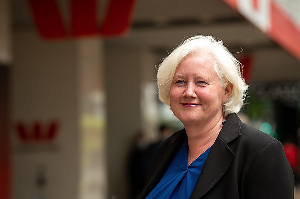
To beef this up, the bespoke financial service provider is setting up a series of educational webinars for the country’s 2,000 mortgage advisers outlining what Funding Partners can do and how it can benefit their clients. They will be launched next month.
Funding Partners has 10 different funding lines from private funders to large managed investment schemes and merchant bankers, finding first mortgage opportunities for them. It also provides administration services.
Griffiths, who recently joined the company as a consultant atter being restructured out of the New Zealand head job at Bluestone last year, says Funding Partners is a lot bigger than she thought. “It went through a big growth phase and is aiming at another by attracting more funders.”
It deals with funding for residential regulated and unregulated loans through to commercial. A broad spectrum of options, she says.
According to Griffiths non-banks need to ramp-up their efforts to let mortgage advisers know what products are available, particularly at this time of the year when mortgage stress starts showing because people have bigger payments after rolling onto higher interest rates and have often overspent at Christmas.
“This is where it gets hard for people to juggle the bills over the next couple of months. We don’t want them to put their head in the sand, but to seek advice from their mortgage adviser as soon as possible. There are plenty of options non-bank lenders can offer, but advisers need to be aware of them and use different funders for deals that fall outside the major banks and are difficult to place.”
“Funding Partners can take an out of the box deal that most lenders won’t look at, have a conversation with one of its funders to see if they are interested. It’s a boutique way of actually placing the right deal with the right funder to get that solution for the customer,” Griffiths says.
Non-bank lenders work well for customers, who have difficult stories behind their major bank mortgage defaults, she says.
“Whether the customer has lost their job, or their relationship has broken down, non-bank lenders look at the life event quite differently and can help the client get back on track to the point where they can apply for another major bank mortgage.”
Griffiths says non-bank lenders are structured differently to the major banks with their pricing and are typically risk rated.
The higher the customer’s loan-to-value (LVR) is, the higher interest rate is because the risk has increased. “When a customer’s credit profile shows they have missed a couple of mortgage payments or had some automatic payments that were bounced and non-bank lenders know it will be rectified, they will generally take the client on, but it will cost them a bit more until they are back on the straight and narrow and can control their finances.
She says even customers who have missed three mortgage payments, are going backwards and have a Property Law Act notice can sometimes be helped. “Some non-bank lenders can actually still rescue those clients because usually it's a life event, such as sickness in the family and the mortgage holder has had to give up work to look after the family member.”
Non-bank lenders, she says, tend not to be as judgmental as the major banks and if the customer owns their home there is often a solution till they get back on their feet.
Wondering about DTIs
Advisers she has talked to recently say first home buyers and investors have come back into the market. “Whether the proposed debt-to-income ratios will propel the market is difficult to tell.
“But taking a step back, you have to ask why are the lending rules going to change? Is something broken? It seems to me the banks’ lending processes have worked for quite some time and there isn’t a huge mortgage default issue.
“The country went through a massive property boom and it hasn’t caused a huge number of mortgagee sales. It’s almost like the horse has bolted.”




Comments
No comments yet.
Sign In to add your comment